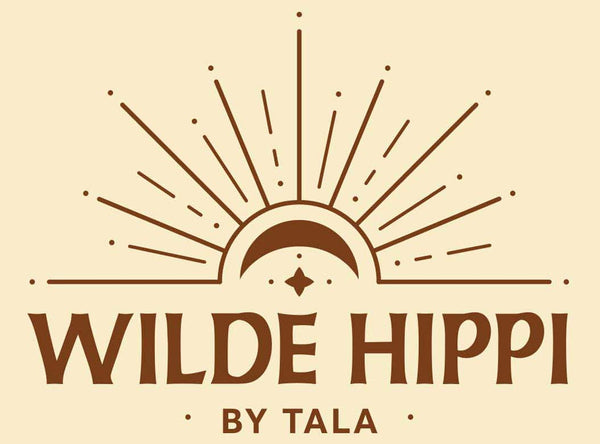
Fibreshed: Weaving a Local Textile Future in the South West of England
Share
Fibreshed: A Local Revolution in Sustainable Textiles.
As we step into a future where sustainable fashion is more than just a trend but a necessity, the concept of fibreshed is gaining momentum. A fibreshed is a localised textile system that focuses on regenerative farming, ethical production, and reducing carbon footprints by keeping materials, labour, and processes within a specific geographical region. This approach challenges the globalised, industrialised textile system that has disconnected us from the origins of our clothing.
The UK Fibreshed Movement
The UK has been actively engaging in the fibreshed movement, with various initiatives across the country dedicated to rebuilding regional textile economies. One of the most prominent networks is the South West England Fibreshed, which encompasses Devon, Cornwall, Somerset, and Dorset. This region has a deep-rooted history in wool production, and today, independent designers, farmers, and artisans are reviving these traditions in a modern, sustainable way.
Pioneers of the South West England Fibreshed
Several brands and initiatives are leading the fibreshed movement in the South West, proving that local, regenerative textile systems can be both commercially viable and environmentally responsible. Here are a few inspiring businesses making waves in the region:
1. South West England Fibreshed Initiative
This collective works with local farmers, mills, and designers to build a transparent supply chain rooted in regenerative agriculture. They emphasise soil health, natural dyes, and low-impact processing to create clothing and textiles with a significantly lower environmental impact.
2. Fernhill Farm (Somerset)
A beacon of regenerative agriculture, Fernhill Farm practices holistic grazing techniques that improve soil health and biodiversity while producing high-quality wool. They supply fleece and yarn to local textile makers, contributing to a truly closed-loop system.
3. Blacker Yarns & The Natural Fibre Company (Cornwall)
Based in Launceston, Cornwall, this company processes British wool from small-scale farmers, spinning it into high-quality yarns. Blacker Yarns specialises in breed-specific wool, supporting native sheep breeds while ensuring ethical production practices.
4. Rampisham Hill Mill (Dorset)
This small-scale semi-worsted spinning mill in Dorset specialises in processing British wool from local farms. Rampisham Hill Mill supports sustainable textile production by providing high-quality yarns while maintaining ethical and low-impact processing practices.
5. Bristol Cloth
Bristol Cloth is a fantastic example of urban-meets-rural fibreshed innovation. Their fabric is made entirely within the South West region, using local wool, plant-based dyes, and small-scale weaving techniques. Their ethos revolves around creating long-lasting, biodegradable textiles.
Why Fibresheds Matter for Sustainable Fashion
The fibreshed movement isn’t just about reviving heritage craft; it’s about redefining the future of fashion. Here’s why it’s crucial:
- Carbon Reduction: By keeping the entire supply chain local, fibresheds eliminate the excessive carbon footprint of transporting materials worldwide.
- Soil Regeneration: Farms practicing regenerative grazing improve soil health, which in turn captures carbon and enhances biodiversity.
- Transparency & Ethics: Knowing exactly where materials come from fosters greater accountability and connection to the people and ecosystems involved.
- Biodegradability: Unlike synthetic fabrics, which pollute the environment, natural fibres from fibresheds are compostable, creating a true circular economy.
Fibreshed Philippines: Southeast Asia’s Local Textile Revolution
Closer to Singapore, the Fibreshed Philippines movement is working to revive traditional weaving and local fibre production while promoting sustainability. The initiative focuses on empowering rural communities, particularly indigenous artisans, by preserving age-old techniques in weaving and natural dyeing. The movement champions native plant fibres such as piña (pineapple fibre), abacá (Manila hemp), and cotton grown through regenerative farming practices. By fostering local textile economies, Fibreshed Philippines reduces reliance on imported materials and helps create ethical, biodegradable, and culturally significant fabrics. The project not only supports Filipino craftsmanship but also serves as a model for sustainable textile production in the wider Southeast Asian region.
Supporting Your Local Fibreshed
If you’re in the UK and want to be part of the fibreshed movement, here’s how:
- Choose Local Textiles: Seek out brands sourcing materials from UK fibresheds.
- Support Small-Scale Farmers & Artisans: Buy from ethical wool producers and local weavers.
- Educate Yourself & Others: Spread awareness about regenerative farming and locally sourced fashion.
- Experiment with Natural Fibres & Dyes: If you're into DIY fashion or crafting, explore working with local wool and plant-based dyes.
The South West of England is proving that sustainable fashion isn’t just about new technology—it’s also about returning to slow, intentional, and local ways of making. By supporting fibreshed initiatives, we’re not just dressing sustainably; we’re investing in healthy ecosystems, ethical supply chains, and a fashion future rooted in care.
Follow My Journey in Fashion Sustainability
As I continue my MA in Fashion Sustainability at Falmouth University, I’ll be reflecting on what I learn, the challenges we face in transforming the industry, and the innovations shaping the future of circular fashion. If you’re passionate about sustainability, ethical design, and rethinking fashion’s impact, I invite you to follow along as I explore these ideas in my ongoing reflections. Let’s keep the conversation going—because the future of fashion is circular. 🌍✨
Wilde Reads: Books For Change
If you're passionate about sustainability and fashion, why not join our Wilde Hippi Book Club? Together, we’ll explore books that inspire change, discuss new ideas, and build a community committed to ethical living. We are currently read The Future We Choose by Christiana Figueres and Tom Rivett-Carnac Let’s turn the page towards a better world! 📚✨
With gratitude,
Tala 🌿✨
Follow the Journey
FACEBOOK | INSTAGRAM | BLUESKY | YOUTUBE | TWITTER
Join the conversation with hashtags like:
#wildehippiways #thread-ed #wildereads #fashionsustainability #progressdiary #greendesign #textiletalks #learnsustainability #booksforchange #fibreshed
